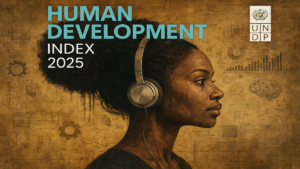The US Chamber of Commerce recently unveiled the 12th edition of its International Intellectual Property (IP) Index, offering a comprehensive evaluation of the IP landscape across the globe. This year’s index ranked 55 economies, assessing their IP frameworks’ effectiveness in fostering innovation and creative industries. The United States retained its position at the pinnacle, followed closely by the United Kingdom and France, highlighting the critical role of robust IP systems in economic development.
India’s Position in the Global Ranking
India secured the 42nd position out of the 55 countries evaluated, with an overall score of 38.64 percent. This placement underscores the ongoing challenges and opportunities for India in strengthening its IP framework to bolster innovation and economic growth. Despite the static position, the inclusion of India in the analysis signifies its importance in the global IP discourse.
Global Leaders in IP Rights
The index identified the top 10 economies with the most effective IP frameworks, led by the United States with a score of 95.48 percent. The United Kingdom and France followed, demonstrating the preeminence of Western economies in the IP domain. This hierarchy of nations reflects the direct correlation between strong IP protections and economic prosperity.
Top 10 Economies for IP Rights
- United States (95.48%)
- United Kingdom (94.12%)
- France (93.12%)
- Germany (92.46%)
- Sweden (92.12%)
- Japan (91.26%)
- Netherlands (91.24%)
- Ireland (89.38%)
- Spain (86.44%)
- Switzerland (85.98%)
Trends and Observations
The report highlighted several key trends, including the advancement of 20 economies in their overall IP scores. Notably, Saudi Arabia, Brazil, and Nigeria emerged as the top gainers, reflecting their concerted efforts to invest in policy-driven innovation. This improvement among various countries signals a positive trend towards strengthening global IP policies.
Conversely, the index also revealed stagnation in 27 economies, including India, where no significant progress was noted. Furthermore, eight countries, such as Ecuador, experienced a decline in their rankings due to inadequate enforcement mechanisms against IP infringements.
Implications for Global IP Policy
The findings from the index suggest a plateau in progress among the top-ranked economies, calling for renewed leadership from the United States and the European Union in IP policy. The report advocates for multilateral organizations to reassert their commitment to global IP standards, cautioning against counterproductive measures like IP waivers that could undermine the IP framework’s integrity.




 India's Progress in Human Development In...
India's Progress in Human Development In...
 CareEdge State Rankings 2025: Maharashtr...
CareEdge State Rankings 2025: Maharashtr...
 Top 10 Most Expensive Cities To Live Aro...
Top 10 Most Expensive Cities To Live Aro...








